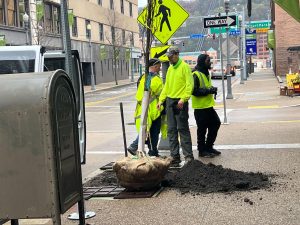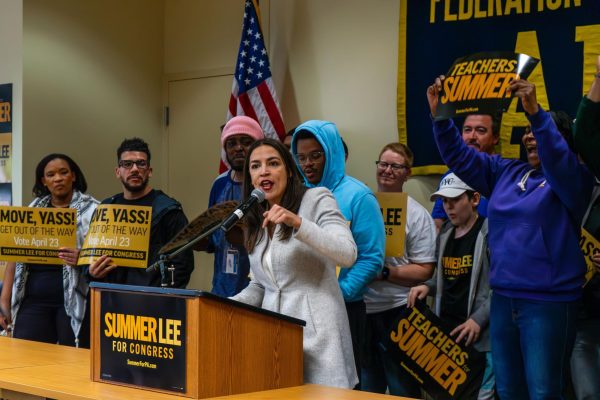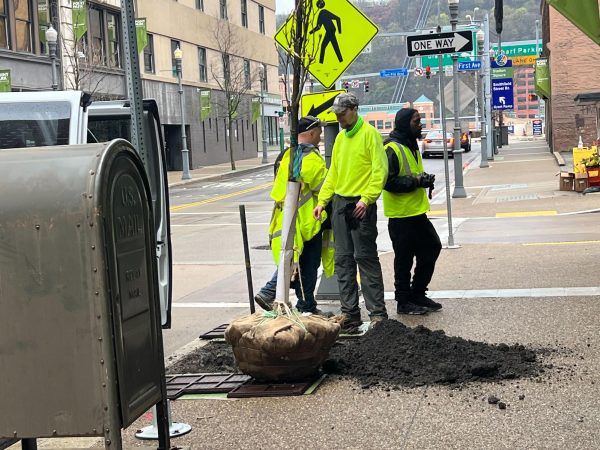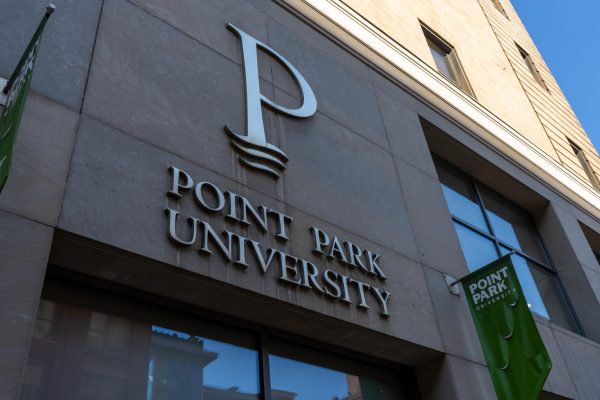Auditor General visits Point Park, discusses climate crisis
April 2, 2019
Pennsylvania Auditor General Eugene DePasquale visited Point Park on Thursday, March 28 to hear from various scientists and environmental activists from the Pittsburgh area on the city’s efforts to combat climate change. DePasquale is currently in the process of preparing a special report on the state government’s response to the issue.
“Pennsylvania, I believe, must step up and take a leadership role in mitigating this,” DePasquale said. “It is my view that we cannot rely solely on the federal government, there are things Pennsylvania can and should be doing. I am the chief-fiscal watchdog in the state of Pennsylvania, the cost of not addressing climate change is real.”
In attendance at the hearing was Point Park President Paul Hennigan; Carnegie Mellon University Professor Costa Samaras; IBEW No. 5 member Paul Reinert; Sierra Club member Tom Schuster; Conservation Consultants Inc. members Lucy de Barbaro and Allison Steele; PA Society of Professional Engineers member Joseph Boward; AIA Pennsylvania President-Elect Marc Mondor; and PA Department of Transportation member Cheryl Moon-Sirianni.
Each member of their respective groups conveyed information they gathered about the Pittsburgh region and presented it to DePasquale. Hennigan was among the first group of testifiers at the hearing and addressed what Point Park and other Pittsburgh universities are doing to combat climate change.
“We have renovated a number of our buildings and have also built a couple of new buildings,” Hennigan said in the hearing. “In all of our renovations and in all our new construction, we are re-building so they are green-code certified.”
He then assured that Point Park will continue to do so with any and all buildings that the university owns now or will pursue in the future. Along with that, Hennigan noted that all efforts are being made to use environmentally friendly products in regards to housekeeping and building maintenance programs.
“We have a robust recycling program that includes paper, cardboard, plastic and even electronics and now cooking oil,” Hennigan said. “We pay attention to energy consumption, and we started doing that about 10 years ago by installing energy-efficient light fixtures as well as technology that senses people are in the room. When we are faced with a project that needs to be renovated or new construction what we have learned over the years is that it just takes a certain effort on the part of the organization to be environmentally conscience.”
Hennigan went on to address the efforts that students are making in order to be environmentally friendly. He cited that in his experience, students at Point Park are demanding education on climate change and how it affects the planet.
“There is a demand [from students] that we include courses relating to climate change,” Hennigan said.














